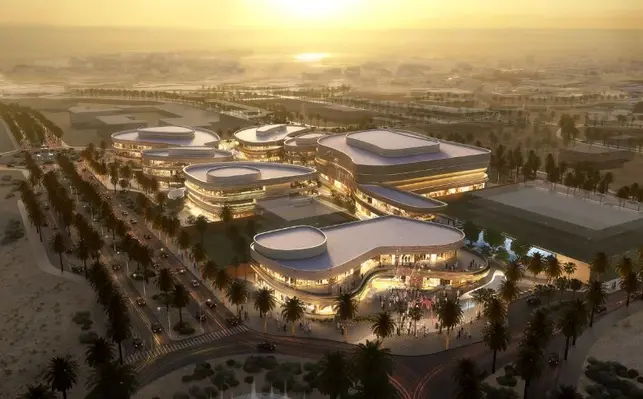Design firm Gensler has published its annual forecast report on global trends across the built environment
The report reveals seven key trends that are shaping the building industry in the Middle East, including sustainable building practices, AI and innovations, and 20-minute cities.
Experience multipliers
Now more than ever before, people are looking for connected experiences in every part of their lives, whether in a workplace that feels like a clubhouse or mixed-use entertainment districts. In 2024, real estate leaders will find success reclaiming human connection with “experience multipliers”: immersive designs that drive loyalty, boost sales, and improve vibrancy with a shared sense of inspiration and belonging.
Conversions resurrect stranded assets
Office-to-residential conversions will represent a new value proposition for the building industry. This will address a vital need for new residential options in cities. In 2024, expect more government municipalities to incentivise adaptive reuse strategies and conversions — and do it in an environmentally responsible way.
Sustainable design becomes non-negotiable
By 2024, the building and real estate industries around the world will recognise the value of environmentally conscious design and its ability to mitigate risk. Higher standards for products and materials, the adaptive reuse of existing buildings, net zero energy strategies, and regenerative design principles will define our sustainable future.
The future of the workplace
The focus will shift less on how many people come into the office and more on what the future of work looks like to support their people’s needs. In 2024, organisations will continue to plan for in-person experiences in spaces that are agile and flexible enough to evolve with the changing demands of the workforce and useful enough to earn people’s commutes.
Mixed-use lifestyle districts making a comeback
Monolithic, office-focused downtowns have become a thing of the past, replaced by vibrant, experience-driven social districts that are focused on a mixed-use collection of retail, entertainment, sports, housing, and other lifestyle-anchored developments.
Designers harnessing AI
Far from replacing designers, AI will become a collaboration tool that will help designers redefine the design and innovation process with new insights, rapid iterations, and more immediate response times. Buildings and spaces designed with the help of AI will be more sustainable, better performing, and more responsive to individual needs and preferences.
20-minute cities becoming attractive
These vibrant, walkable neighbourhoods, where all essentials lie within a 20-minute reach are redefining city living. This trend underscores the importance of creating accessible, inclusive urban spaces that promote equity, connectivity, and community.
Tim Martin, principal and managing director of Gensler Middle East said, “The 2024 Design Forecast gives a unique insight into the most pressing issues we face today - both globally and here in the Middle East - and how we can leverage the power of design to make a positive impact.
Fresh off the heels of COP28 in Dubai, there’s a spotlight on the region and it’s encouraging to see that climate action in the built environment will continue to be a focus into next year. Outside of sustainability, we’re already seeing how AI can be leveraged to redefine the design process through Gensler’s proprietary technology suite, as well as how the 20-minute city is becoming increasingly attractive in the Middle East.”







